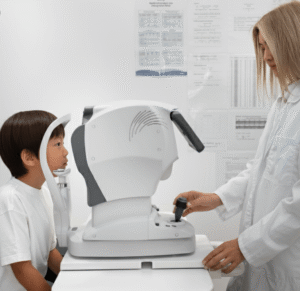Overview
Reflux in babies, also known as infant gastroesophageal reflux (GER), is a common condition where stomach contents flow back into the esophagus, causing spitting up and discomfort. It is usually harmless and resolves as the baby’s digestive system matures. In Korea, pediatricians provide careful evaluation and guidance to manage reflux and ensure healthy development.
What is Reflux in Babies?
Reflux occurs when the lower esophageal sphincter (LES), the muscle controlling food passage from the esophagus to the stomach, is immature and relaxes, allowing stomach contents to flow backward. This leads to regurgitation or spitting up in infants.
Symptoms
- Frequent spitting up or vomiting
- Irritability or crying during or after feeding
- Poor feeding or refusal to eat
- Coughing, choking, or gagging
- Arching the back during feeding
- Poor weight gain in severe cases
Causes
- Immature digestive system and LES in infants
- Overfeeding or swallowing air during feeding
- Food allergies or sensitivities
- Positioning during and after feeding
Risk Factors
- Premature birth
- Exposure to tobacco smoke
- Family history of reflux or allergies
- Formula feeding (compared to breastfeeding)
Complications
- Poor weight gain or failure to thrive
- Esophagitis (inflammation of the esophagus)
- Breathing problems such as wheezing or recurrent pneumonia
- Feeding difficulties
Prevention
- Feeding smaller, more frequent meals
- Keeping the baby upright during and after feeding
- Avoiding overfeeding
- Breastfeeding if possible
- Monitoring for allergies or intolerances
Treatment Options in Korea
Diagnosis
Pediatricians diagnose reflux based on clinical symptoms and history. In some cases, tests like pH monitoring or upper GI studies may be used.
Medical Treatments
- Feeding modifications and positioning strategies
- Use of thickened feeds
- Acid-reducing medications (only if necessary and prescribed)
- Treatment of underlying allergies if identified
Surgical or Advanced Therapies
- Rarely needed, but surgery such as fundoplication may be considered in severe, persistent cases
Rehabilitation and Support
- Parental education on feeding and care techniques
- Regular monitoring of growth and development
- Support groups and counseling for families dealing with severe reflux













